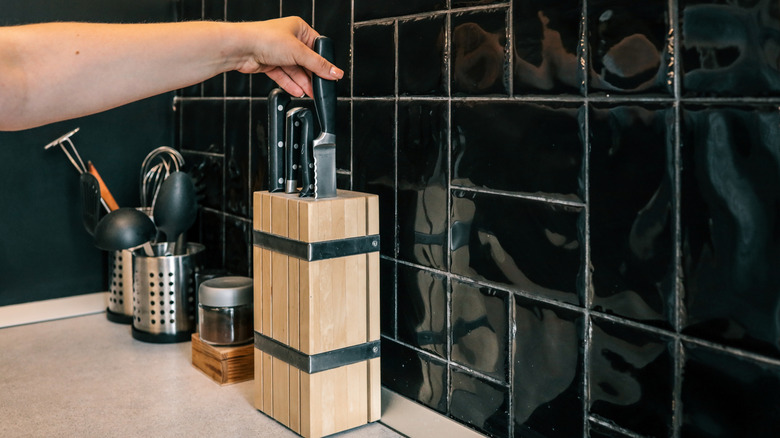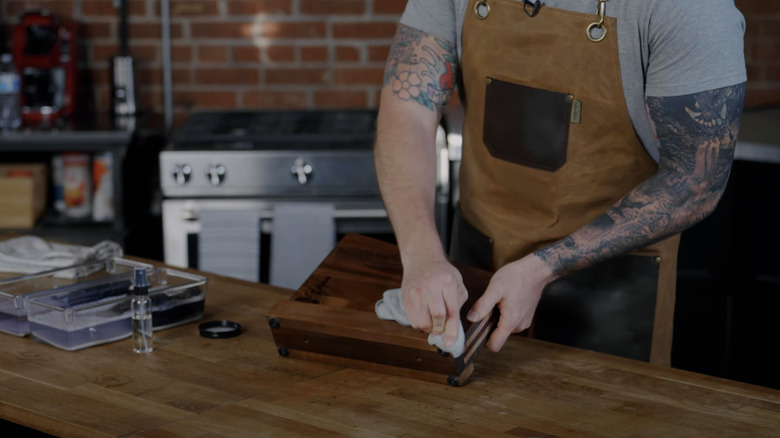Chances Are Your Kitchen Knife Block Is Dirty—here's How And When To Clean It
We may receive a commission on purchases made from links.
You've got your kitchen's deep clean routine down pat. All the space's nooks and crannies are accounted for. Cleaned out the dishwasher filter? Check. Wiped down the air fryer's coils? Check. Cleaned the knife block? Probably not. You might be looking at it, thinking it must be one of the hardest spots to get clean in your kitchen. If you're among the 30% of people who have never cleaned the inside of their knife block, don't worry. It's easier than it looks. All you need is a pipe cleaner or straw cleaner, isopropyl alcohol, a few rags, dish soap, and warm water, plus space in your schedule every month or so.
The knife is clean, so the inside of the block should be as well, right? It's not quite as cut and dried as that. When you use your knives, tiny bits of food attach to the blade. If you don't properly wash your knives after use, those food particles end up in your knife block, potentially turning into bacteria that can make you sick. Another potentially dangerous habit is washing your knives properly, but not fully drying them before returning them to the block. The moisture can lend to bacteria or mold growth.
How to properly clean your knife block
For wood knife blocks, remove the knives, then turn the block over and shake it out to get rid of debris. If there's something stuck in a slot, grab a can of compressed air to spray it loose. Turn it right side up, add a few drops of isopropyl alcohol to your pipe or straw cleaner, then insert it into each slot. Wiggle it around a bit to make sure it not only grabs any remaining gunk, but also kills off any bacteria or mold. If you don't have a straw or pipe cleaner, carefully wrap a thin kitchen cloth around one of your knives instead. Use an old rag, since sharp knives might cut it. Clean the outside with warm, soapy water. Let dry for up to 8 hours. Hand-wash plastic knife blocks and let them to dry before reinserting the knives. Try to clean your knife block every four weeks.
Once your knife block is clean, make sure the knives themselves are clean. Use dish soap and hot water to wash them, then dry them thoroughly. Drying takes a moment longer, but it's an important part of cleaning your kitchen knives. If this feels like more effort than you want, look for alternative knife storage options. We love a magnetic knife bar, like the Modern Innovations Stainless Steel Magnetic Knife Bar, to keep knives within reach while cooking. Want to keep them tucked away? A sheath, such as Mercer Culinary Knife Guard, is a great option.

